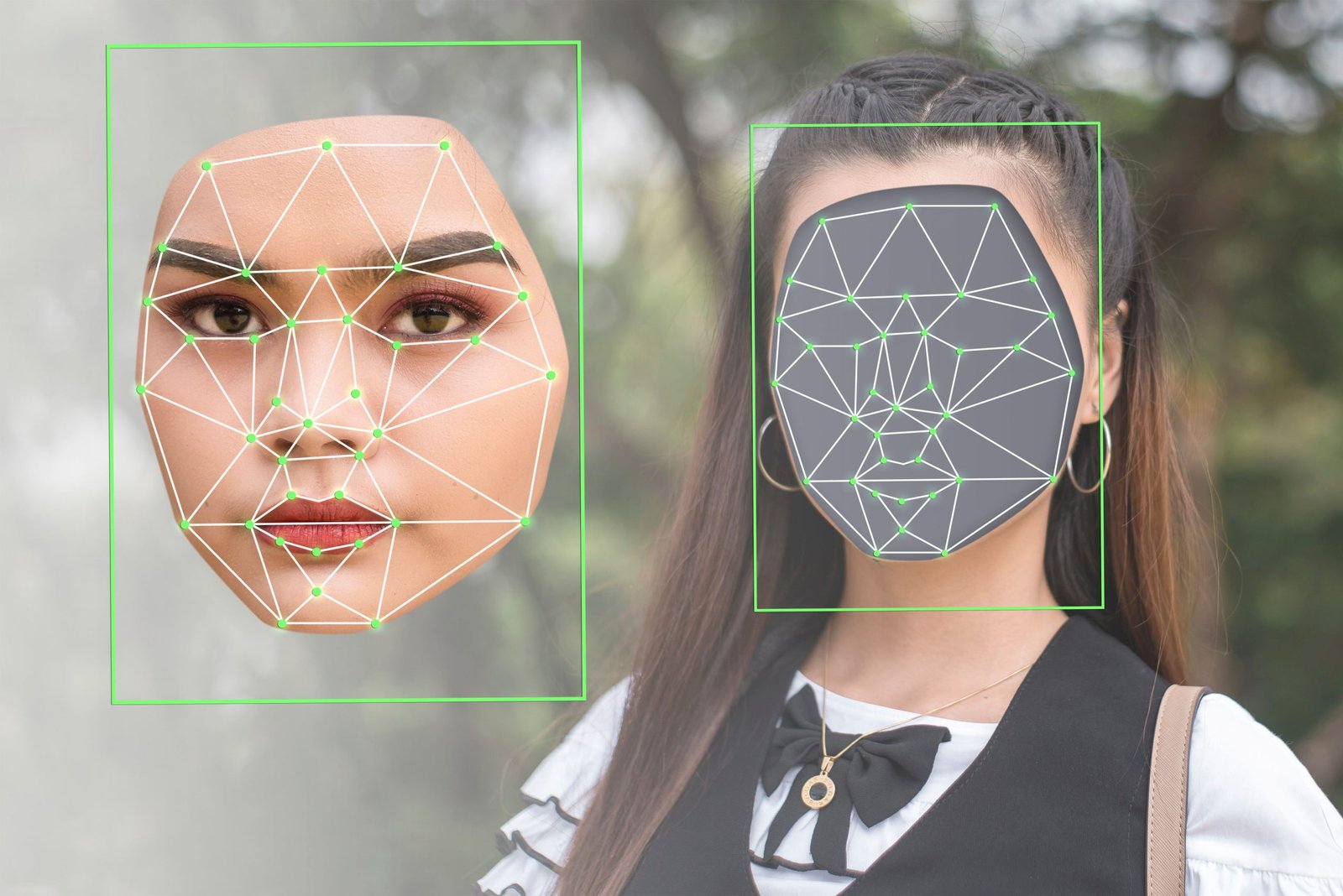No products in the cart.
Parenting in the AI age: upsides & downsides
Digital screens, apps, social media and ChatGPT have become as much a part of children’s lives as textbooks and playgrounds. We present guidelines from tech educators and parenting experts on the benefits and risks of parenting in the new digital age with special focus on the impact of Al on children, Kiran Balimane & Cynthia John

ICT (information and communication technology) is likely to prove the greatest disruptor of the 21st century. On the eve of the new millennium came the computers revolution. It was followed by the Internet, mobile phone and now artificial intelligence, marvellous inventions and innovations which have changed every aspect of human experience — from the way we work, communicate, learn, shop, date and increasingly how we parent children.
Silently and imperceptibly, these life-changing technology breakthroughs of the past quarter century have also revolutionised traditional child-rearing nostrums and practices with parents worldwide turning to them for best advice on ways and means to nurture, motivate and develop children. Millions of online resources, forest of apps, social media platforms and AI chatbots are providing parents never-before information and advice on a wide range of parenting issues starting from coping with pregnancy to expert guidance on child health and development, learning resources and tracking children’s progress through the education continuum. Parents are increasingly relying on digital sources of information, and children have also become tech dependent for learning and entertainment. Digital screens, apps, social media and ChatGPT have become as much a part of children’s lives as textbooks and playgrounds.
Inevitably, this mega tech revolution has its downside. All parenting information and advice available in the online and AI world is not reliable. A fast increasing number of parents complain that the treasure trove of free-of-charge information available online is confusing and often contradictory. More alarming, the rising digital screen addiction of children is causing deep fissures in the contemporary parent-child relationship. According to a 2024 survey by Baatu Tech, a Bengaluru-based smart parenting solutions company, 95 percent of middle class Indian parents are “deeply concerned” about their children’s screen addiction and its adverse impact on their physical and mental health.
“Today, children often learn to use electronic gadgets before they start talking. Initially, it was amusing to witness my two-year-old son operating an iPad independently. But over time, I began noticing that he was spending too much time on the iPad and mobile phone. What began as harmless entertainment was quickly spiraling into digital dependency adversely affecting his nutrition and school work. During the past few years, we have substituted his screen time with activities such as art, dancing, gardening and sports,” says Seema Shirali, a Bengaluru-based engineer with Capgemini and mother of a nine-year-old son.
Now with generative AI-powered chatbots such as Alexa, Siri, ChatGPT, Copilot and Google Assistant set to radically upend all aspects of human lives, and especially education of children, parents are becoming increasingly anxious about the impact of AI on their progeny.
A recent study conducted by the National Coalition for Public School Options in the US found that 71.5 percent of parents are “concerned” about use of AI in schools with 80 percent stating that easy access to AI platforms will adversely affect children’s learning because technology tools will do their work such as writing essays for them.
Issues such as privacy, security, mass distraction, insularity, ADHD and their impact on children’s learning and social skills are confusing and alarming parents worldwide.
“All of a sudden, generative artificial intelligence — which can create new content such as text and images — has become accessible to everyone, including children. Parents are naturally hesitant about AI. Many schools have considered banning some AI use, amid claims it would lead to cheating and undermine academic integrity. But AI is not going away, and will only become more widely used in our lives. The sooner young people learn to use this technology, the more informed they can be about how to use it wisely and productively. If you are a parent, it is important to learn about and try these technologies for yourself so you can help your child navigate a world with AI. Start by logging in to a free generative AI tool, and experiment together by asking the bot some questions and reflecting on the answers,” write Kathy Mills, professor of literacies and digital cultures, Australian Catholic University and Christian Moro, associate professor of science & medicine, Bond University, Australia in The Conversation (see box p.12).
In the following pages, we present abridged insights and guidelines of tech educators and parenting experts on the benefits and hazards of parenting in the new digital world with special focus on the impact of Al on children.
AI benefits
The online world offers children a wealth of knowledge and information to research school projects and assignments. The role of parents is to guide them towards reliable sources of information and teach critical thinking skills — to learn to appraise, question, verify and validate online information. Moreover for children interested in art, music, creative writing, among other extra-curricular pursuits, a mind-boggling array of resources are available online. Encourage children to use them to develop their artistic intelligences.
 “The multitude of digital resources available online are a godsend for parents. Whether it’s researching for a school project or multimedia lessons explaining science, maths, history, geography problems, the online world works as a free tutor of children. My seven-year-old daughter turns to the internet and apps to learn as well as experiment with painting and music. My role as a parent as I understand it, is to guide her to the best and most credible digital resources,” says Archana Jyoti, a Bengaluru-based associate director in a clinical research organisation and mother of a girl child.
“The multitude of digital resources available online are a godsend for parents. Whether it’s researching for a school project or multimedia lessons explaining science, maths, history, geography problems, the online world works as a free tutor of children. My seven-year-old daughter turns to the internet and apps to learn as well as experiment with painting and music. My role as a parent as I understand it, is to guide her to the best and most credible digital resources,” says Archana Jyoti, a Bengaluru-based associate director in a clinical research organisation and mother of a girl child.
In particular, generative AI provides children access to infinite information and data, personalised learning experiences customised to their individual learning styles, and provides feedback to improve learning outcomes. “AI is a boon to educators and parents to design engaging, personalised lessons suited to children’s individual learning styles. Personalised learning engages and motivates children to learn at their own pace. Though it cannot be a substitute for live conversation and classroom learning, AI is a boon for parents and educators to improve children’s learning outcomes and drive them towards success,” says Dr. Monica Nagpal, a Hyderabad-based mindfulness and parenting coach.
 Maintaining the balance
Maintaining the balance
Sonakshi Bhutani, a Faridabad-based parenting coach, psychologist and educationist and founder of House of Light and Abundance, which offers parenting programmes and workshops, shares guidelines to parents on ways and means to maintain a balance between the digital and real worlds.
- Arbitrary bans limiting screen and gadgets usage time is not the solution. When bans are imposed, they lead to rebellious increased usage. Instead, parents need to involve children in finding mutually acceptable solutions.
- Generative AI possesses digital fluency that is likely to exceed parents’ online know-how. Therefore, parents need to invest time in learning and understanding new technologies and apps popular with children. By actively upgrading their own digital literacy, parents will learn to understand tech platforms, their potential risks, and engage in meaningful conversations with children about online safety and digital citizenship.
- Encourage open communication. Children should be prompted to share positive and negative online experiences on the assurance of unconditional parental support and guidance.
- Articulate clear tech usage expectations and boundaries. Set mutually agreed guidelines for screen time, apps usage, and online behaviour. In consultation with your children, work out a balanced daily routine that incorporates non-digital activities such as exercise and sports.
- Lead by example. Children emulate parental behaviour. Therefore, be mindful of your own digital habits and model responsible online behaviour. Prioritise spending quality family time and engage in activities that nurture children’s social skills and emotional intelligence.
- Remember that children are more susceptible to cyber bullying, trolling, and online harassment. Parents have a duty of care to educate children about online dangers, digital etiquette and safe behaviour. Monitor their social media interactions and encourage discussion about negative experiences.
- Excessive time spent online adversely affects children’s sleep rhythm and mental health. Therefore, set mutually agreed boundaries for digital devices usage, especially before bedtime. Encourage outdoor play, family conversations, and games and sports.
- It’s important to bear in mind that monitoring children’s online activities is not about demonising technology, but about harnessing its potential to ensure their well-being in the digital world which has lurking dangers and downsides.
 Understanding AI risks
Understanding AI risks
According to mindfulness and parenting coach Dr. Monica Nagpal, while AI-driven chatbots and apps offer easy access to information, using them comes with risks specially for vulnerable children. “AI can prove to be a double-edged sword, especially for children. Risks range from privacy and safety issues to adverse psychological and behavioural impact. It’s important for parents to understand these risks and downsides of learning enhancement AI tools,” says Nagpal.
AI chatbots can spread hate and perpetuate stereotypes. As AI chatbots aggregate information from all data they find online, they can spread misinformation. As an algorithmic creation, it can be used to reinforce existing social prejudices encoded in the data it is fed. Additionally, the model’s lack of built-in truth filters poses risk of disseminating misinformation. Several studies have shown that AI-generated content reinforces gender and racial stereotypes and falsehoods. Parents and educators must educate children to question and validate online information.
Data privacy invasion. Since AI collects data, most of it without our knowledge and consent, its privacy invasion power is dangerous. It is best for parents to restrict children from using AI-powered apps and toys which are interactive and can “talk” with children.
Inappropriate content and messaging. AI algorithms track content children search on the internet and social media, and fill their online feeds with this content. Most often, the content is ads-linked and inappropriate for children.
Distorting photos and images. AI can easily distort images of people and create ‘deepfake’ photos to spread fake news. Voice cloning is another new threat posed by AI. It’s critical for parents to educate children not to share personal details and images on untrusted websites and apps.
 Cheating and plagiarisation. With AI chatbots such as ChatGPT being used extensively by children to churn out essays and assignments, plagiarism and cheating have become commonplace. Parents should educate children that misuse of AI-based learning platforms not only prevents proper learning by providing easy solutions with disastrous impact when examinations are held, it also impairs development of their critical thinking and problem-solving skills.
Cheating and plagiarisation. With AI chatbots such as ChatGPT being used extensively by children to churn out essays and assignments, plagiarism and cheating have become commonplace. Parents should educate children that misuse of AI-based learning platforms not only prevents proper learning by providing easy solutions with disastrous impact when examinations are held, it also impairs development of their critical thinking and problem-solving skills.
Safeguarding children.
Educate children about AI’s benefits and downsides. It’s important to talk age appropriately with children about AI. Discuss the upsides and downsides of this wondrous innovation. Most importantly, help young children understand the difference between real and virtual friends and interaction.
Teach children, especially teens about managing online privacy. Teenagers are especially vulnerable to cyber bullying and online identity theft. Teach them the basics of clearing browsing histories and blocking suspicious social media users and fraudulent marketers. Also enlighten them about the importance of strong passwords and encourage open parent-child communication about online scams and safety.
Use AI together. Experiment and use AI apps and chatbots together with children. This will give you the opportunity to discuss the risk-benefits of AI with children in real-time.
Encourage children to question and be critical. Text and audio-visual content generated by AI apps and tools is not always factually correct and may reinforce entrenched social prejudices and stereotypes. Teach children to develop their critical thinking skills to enable them to question and analyse AI’s role in society, rather than blindly accept the content it generates.
Parenting in the new digital world requires vigilance, empathy, and adaptability. The goal should not be elimination of technology from children’s lives but to ensure it’s informative and enriching rather than destructive and addictive
3 things parents should teach their kids about AI
We are researchers with a background in digital technology and are highly enthusiastic about the potential of AI. However, there are risks as well as benefits. Here are three things parents can keep in mind as they navigate AI technology with their kids.

Christian Moro

Kathy Mills
1. Be critical
Generative AI can do amazing things — like generate images or write stories — but it does not reflect on what it’s writing. It will string text together in a way that makes sense but not “read between the lines”.
Generative AI cannot evaluate the credibility of sources, nor can it always find authoritative information to back up claims. The generative AI software is also trained on data from a specific time so recent events may not be included.
So children need to learn that although it looks similar to other writing, such as in a book or article, the text has been pieced together by computer code. This means every word, sentence and claim should be treated with scepticism.
You can use this as an opportunity to help your children develop critical thinking skills.
Go to a free AI art generator with your school-age child and put in some searches. Then ask your child questions such as, “What type of people are shown? What types are missing? Do you see any stereotypes? Can you discern any biases?”.
2. Watch out for chatbots
Chatbots are computer programs designed to simulate conversations as if they were another human.
For example, there were more than ten million Replika users in 2022. Replika is a chatbot billed as a companion who cares. It acts like a friend but relationships with the chatbot can become romantic or sexual.
In many chatbot applications such as this, there may be no moderation or human checks on inappropriate content. So be aware if your child is spending a long time with AI “friends”.
If left unaccompanied, these types of applications could feed into children’s curiosity and potentially manipulate them into unethical and harmful situations, such as highly personal conversations with a bot.
Make it clear to your children that generative AI is machine, not a human. It does not share your ideals, beliefs, culture or religion. It presents text and language based on models and algorithms. It is not something to argue with, take lessons from, or be used to reinforce your values.
The code may also be manually edited to inhibit certain viewpoints or stances on topics.
3. Images, videos and audio also matter
With all the focus on text, be sure to remind your children that images and videos are also part of the generative AI landscape. Children may be careful about what text they enter online but careless with uploading images.
Their photos and facial image become available to AI when uploaded, which makes it harder to protect their identity. For example, ChatGPT now has image capabilities you can include in your conversations with the chatbot. Discuss privacy with your child, and be sure to mention that any data uploaded to the internet can be stored, scanned and processed by AI.
AI can be a powerful learning and engagement tool, and the developments in this field are highly exciting. With open conversations and some oversight, the possibilities of children greatly benefiting from this technology are endless.
(Kathy Mills is Professor of Literacies and Digital Cultures, Australian Catholic University and Christian Moro, Associate Professor of Science & Medicine, Bond University, Australia)
(This article is republished from The Conversation under a Creative Commons license)
















Add comment